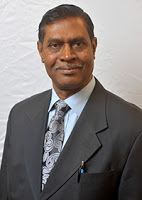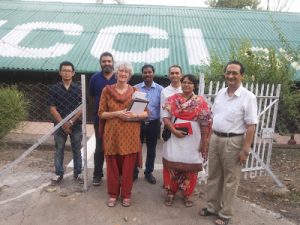The term ecumenism, common though it is in Christian theological vocabularies and in high level conferences and consultations, is still not so well known at the grassroots level. To put it very simply, ecumenism is concerned with relationships which encourage and facilitate listening, learning, mature criticism, mutual edification and change, commitment and solidarity, thereby continuously moving people on to increasingly loving, responsible, just and peaceful integration with God and all creation. Ideally speaking, ecumenism should be a movement. However, most movements usually tend to set up their own structures and institutions. It is best that these structures and institutions are flexible, and keep on changing in line with the spirit and emphases of the movements in the light of the changing contexts. Over the decades, there is a danger for any movement to be reduced to its structures and institutions. The movement of ecclesial ecumenism, which came to prominence during the twentieth century, is now faced with the question: How will this ecumenism find expression in the twenty-first century? While one look at this question from a global perspective, one has to keep in mind its importance from the grassroots perspective.
I
One might immediately recall the well-articulated presentation of Rev. Dr. Samuel Kobia, former General Secretary of the World Council of Churches on “New Visions and Challenges to Ecumenism in the 21st Century” made on 18th November 2006 in Shanghai, People’s Republic of China. (http://www.oikoumene.org/en/resources/documents/general-secretary/speeches/new-visions-and-challenges-to-ecumenism-in-the-21st-century).
In that address, he first highlights the changing ecclesial scenario:
The decline of Protestant churches and of ecumenism in Europe and North America
Kobia observes:
Protestantism in Europe is changing: the number of church members is declining, their influence vis-à-vis the state seems to be decreasing, and financial arrangements are changing. At the same time, the agencies or specialized ministries associated with these churches have become important – and increasingly independent – actors in their own right. The situation in North America – another pillar of the ecumenical movement – is quite different in many respects, but in other ways is quite similar. The mainline churches are experiencing decreases in membership, funding for the national church is becoming more difficult, and access to those in power seems to have shifted to a different set of churches. The growth of non-denominational mega-churches is more a US (NA) phenomenon than a European one.
Consequently,
Read more
 The World Social Forum (WSF) 2016, scheduled to be held in Montreal, Canada from 9th to 14th of August 2016 on the theme “Another World is Needed: Together it is possible”. The goal of the WSF2016 is to gather tens of thousands of people from groups in civil society, organisations and social movements who believe in the construction of a better world. and want to build a sustainable and inclusive world.
The World Social Forum (WSF) 2016, scheduled to be held in Montreal, Canada from 9th to 14th of August 2016 on the theme “Another World is Needed: Together it is possible”. The goal of the WSF2016 is to gather tens of thousands of people from groups in civil society, organisations and social movements who believe in the construction of a better world. and want to build a sustainable and inclusive world.
 Dear brothers, sisters & Friends,
Dear brothers, sisters & Friends, The UN General Assembly has declared 21st June as International Day of Yoga. The Government of India is making preparations for a large scale observance of this day in India and in other parts of the world this year. Yoga is considered by many to be a healthy discipline and therefore has become popular worldwide. Many persons belonging to different religious traditions already practice yoga as a matter of personal choice and conviction.
The UN General Assembly has declared 21st June as International Day of Yoga. The Government of India is making preparations for a large scale observance of this day in India and in other parts of the world this year. Yoga is considered by many to be a healthy discipline and therefore has become popular worldwide. Many persons belonging to different religious traditions already practice yoga as a matter of personal choice and conviction. The Rev. Dr. Samuel W. Meshack was elected to serve a four-year term as the new President of WACC at its Meeting of Members, 29 May 2015.
The Rev. Dr. Samuel W. Meshack was elected to serve a four-year term as the new President of WACC at its Meeting of Members, 29 May 2015. The XVI General Assembly of Christian Conference of Asia (CCA) was held in Jakarta, Indonesia from May 20 – 27, 2015. The theme of the assembly was “Living Together in the Household of God”.
The XVI General Assembly of Christian Conference of Asia (CCA) was held in Jakarta, Indonesia from May 20 – 27, 2015. The theme of the assembly was “Living Together in the Household of God”. Us [United Society, the new name of United Society for the Propagation of the Gospel (USPG) founded in 1701] is an Anglican mission agency working in the partnership with churches around the world. Us work alongside local communities to improve health, put children in school, tackle discrimination, nurture leaders, give a voice to women, and much more.
Us [United Society, the new name of United Society for the Propagation of the Gospel (USPG) founded in 1701] is an Anglican mission agency working in the partnership with churches around the world. Us work alongside local communities to improve health, put children in school, tackle discrimination, nurture leaders, give a voice to women, and much more.
 The killer earthquake that hit Nepal on the
The killer earthquake that hit Nepal on the